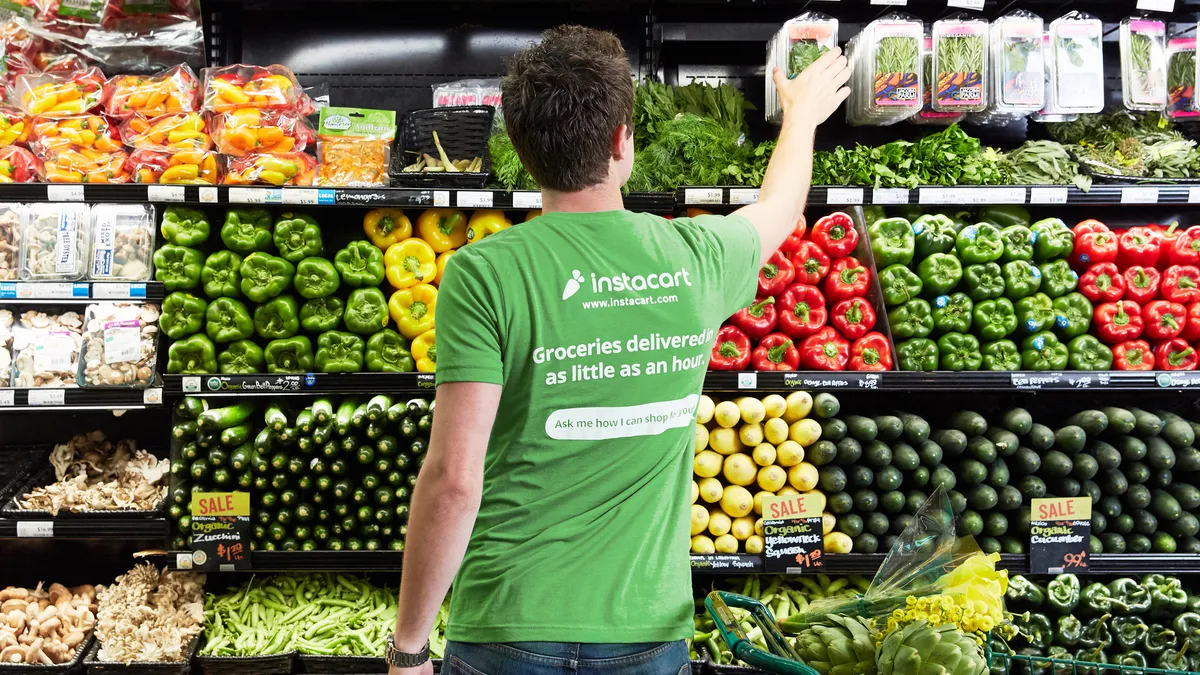Dive Brief:
- The presence of Instacart in the grocery industry has delivered local economic benefits including job creation and revenue growth, according to a study Instacart commissioned from independent firm NERA Economic Consulting.
-
Instacart’s entrance into a market is associated with a 4% increase, on average, in local retail grocery employment, the study found. More than 23,000 jobs in four states studied are directly attributed to the adoption of Instacart in 2019.
-
The company’s presence also boosted incremental grocery revenue by $620 million in 2019, the report said. Instacart is calling its economic impact “The Instacart Effect.”
Dive Insight:
The study suggests that Instacart has created a greater demand for grocery stores among consumers across the U.S. as it has helped build an e-commerce infrastructure for retailers.
“Instacart is changing the way customers engage with grocery stores by creating a complementary online service that would be prohibitively expensive for traditional retailers to offer on their own,” wrote study author Dr. Robert Kulick of NERA Economic Consulting in a statement. “The result is increased grocery demand, which translates into higher grocery store employment and revenue.”
The study further broke down jobs and revenue in four states including California, Illinois, New York and Washington. According to the study, “The Instacart Effect” created the most new jobs and revenue in California, with 11,500 jobs and $337 million in incremental revenue. New York followed, with 6,600 jobs and $154 million in revenue. The results of the study indicate that the effect is “statistically equivalent” for each state, meaning the company’s economic impact applies on a national scale.
The study serves as an appeal to grocers and local lawmakers who might be weighing the impact of the service following a rapid expansion period. It's also another way for Instacart to counterbalance negative reports about its employee and contractor relations. Earlier this month, part-time Instacart employees working at a Mariano’s in Skokie, Illinois, voted to unionize under a local United Food and Commercial Workers chapter. In January, gig workers renewed calls for a boycott in hopes of pressuring Instacart to reinstate a 10% default tip amount for grocery orders.
Outside of the study and recent labor unrest, Instacart has been working to improve its offerings. The company recently introduced Instacart Meals, which allows customers to add made-to-order food items alongside their Instacart grocery haul. It also added new features to its Instacart Pickup platform, including smart storefronts and a mapping tool













